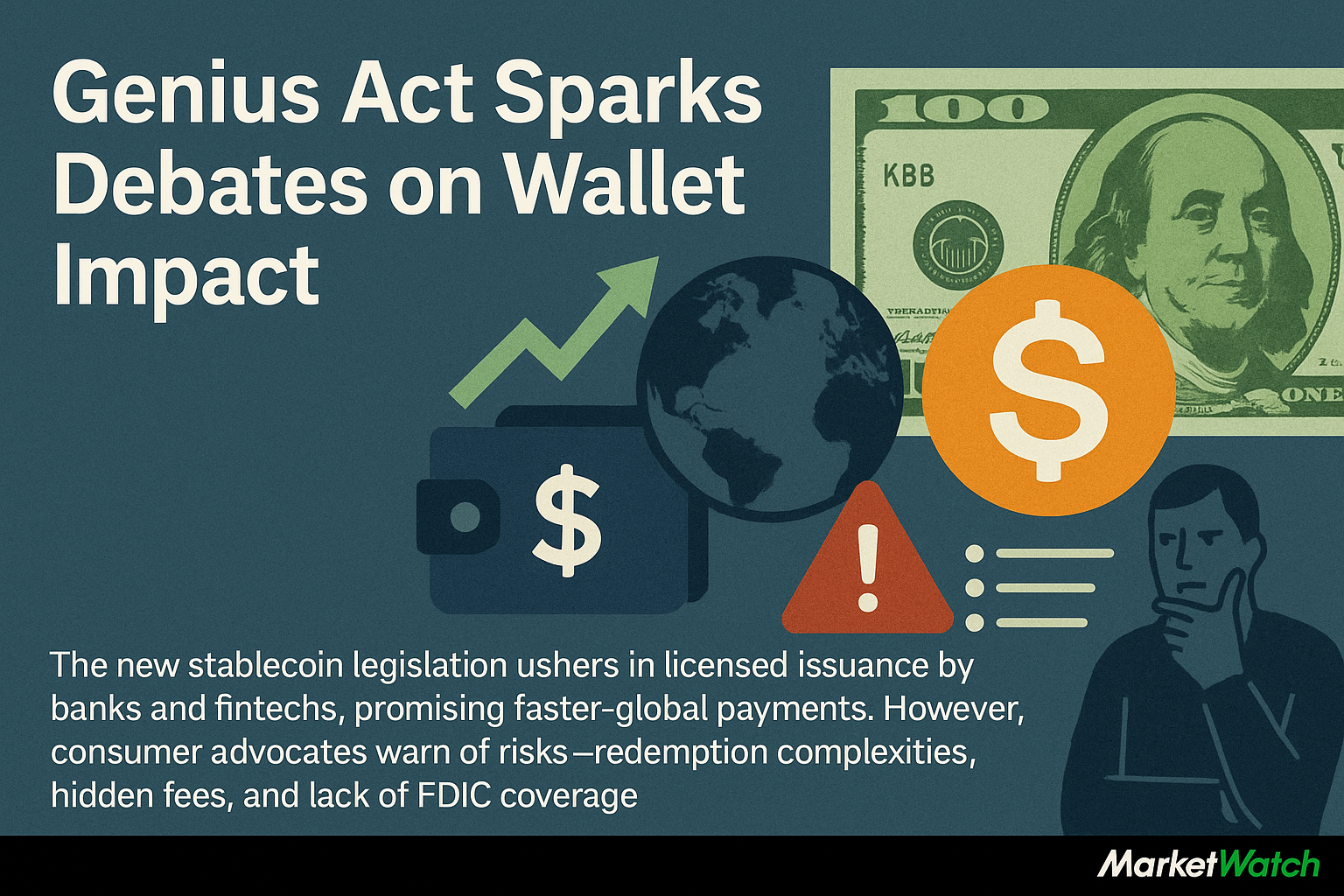On July 18, the U.S. took a monumental step into the future of digital finance with the signing of the GENIUS Act—a sweeping new law designed to regulate stablecoins. The bill, officially titled the “Guidelines for Establishing Nationally Issued, Unambiguous Stablecoins” (GENIUS) Act, establishes a legal framework for the issuance and redemption of U.S. dollar-pegged stablecoins. While proponents hail it as a long-overdue modernization of payment infrastructure, critics argue it may come at the cost of everyday users’ financial safety.
A New Era: Licensed Stablecoin Issuers
Under the GENIUS Act, only FDIC-insured banks and licensed fintech companies can issue stablecoins backed 1:1 by liquid U.S. dollar reserves. This measure seeks to instill trust and reduce the volatility often associated with digital tokens. With clear legal backing, these tokens are expected to offer faster cross-border payments, programmable remittances, and seamless integration into global trade.
Visa and JPMorgan have already announced pilot programs using GENIUS-compliant coins, promising instant settlement for business-to-business (B2B) transfers across continents. In theory, this could eliminate the days-long wait for international wire transfers and reduce foreign exchange fees for consumers and merchants alike.
Hidden Pitfalls: What Consumer Advocates Fear
Yet, for all the excitement, consumer protection groups are sounding the alarm.
1. Redemption Complexities
Although the law mandates full backing, redeeming stablecoins for actual dollars may not be as straightforward as users assume. Redemption rights are determined by the issuer’s terms of service—potentially buried in legalese that consumers rarely read.
2. Hidden Fees
Issuers may attach “processing,” “liquidity,” or “redemption” fees, especially during periods of market stress. A token pegged at $1 may cost $0.98 to cash out—creating silent erosion of value.
3. No FDIC Protection for Token Holders
While the issuers are FDIC-regulated, the stablecoins themselves are not insured deposits. If an issuer goes bankrupt or mismanages reserves, coin holders might be left empty-handed. Consumer advocates are urging Congress to amend the bill to explicitly guarantee tokenholder protection in bank resolution scenarios.
Fintech’s Growing Power—and Responsibility
The GENIUS Act could become a watershed moment in the convergence of traditional banking and decentralized finance. Fintechs like PayPal, Square, and Circle are now de facto money issuers—blurring the lines between banks and tech firms. With power comes responsibility, and many are asking whether these platforms are equipped—or even motivated—to safeguard users from systemic risks.
The Bigger Picture: Is This Crypto’s Final “Bankification”?
Critics of the GENIUS Act warn it may sideline decentralization entirely. By requiring licensing and regulatory oversight, the bill essentially outlaws algorithmic or unbacked stablecoins—the kind favored by crypto-native projects. In effect, this may usher in a “corporate crypto” era where only institutions can mint digital dollars.
This shift may benefit regulatory clarity and bring capital inflows, but it also raises philosophical questions:
-
Are we simply recreating the traditional banking system in digital clothing?
-
Can financial inclusion truly be achieved if redemption requires access to a licensed institution?
-
Will innovation survive in a market dominated by Wall Street and Silicon Valley?
Progress with Caveats
The GENIUS Act is a bold move toward legitimizing digital currencies and modernizing money itself. But as with any transformation, the devil is in the details. Unless consumer protections are fortified and fee transparency enforced, stablecoins might become yet another financial product that promises empowerment but delivers exploitation.
As stablecoin adoption grows, one thing is clear: regulation may be inevitable—but it must be fair. The goal should not be merely to stabilize coins, but to stabilize trust.




